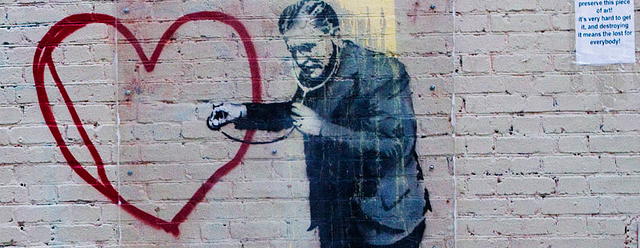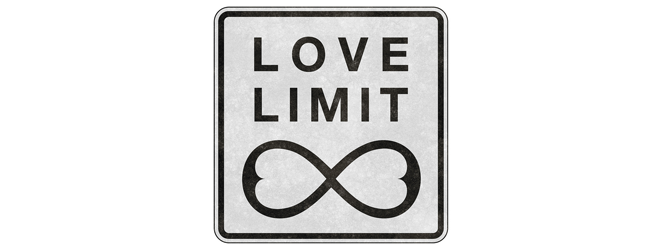
by Tara Joyce | Apr 14, 2023 | Pay What It's Worth Pricing
We destroy the earth, and ourselves, in name of something we do not truly understand. Too often the phrase, “Because the economy…” is used as a scapegoat. It is used as a scapegoat by people asserting their understanding of and control over a collective force we have very little understanding of and control over. Adam Posen, president of the Peterson Institute for International Economics says of economics, “We’re really at the level of Galileo and Copernicus,” still figuring out the basics of how things work.
Current Economic Theory is… Arrant Nonsense
We understand the economy and economics so little because, well, the fundamentals of them make no sense. The foundational concepts of economics are based upon concepts that are generally not true of the real world. As Jeremy B. Rudd, senior adviser at the Federal Reserve, admits “Mainstream economics is replete with ideas that ‘everyone knows’ to be true, but that are actually arrant nonsense.” Adding to this, author Tom Bergin points out, “The failure of the neoclassical (supply and demand curve) framework to explain important segments of economic life hasn’t dented economists’ faith in the universal applicability of them. In the past 40 years or so, in fact, the trend has been to claim that such economic principles apply to more and more domains of life.” Curious, isn’t it? As a social science, economics does itself no favours by not needing to apply its assertions and understandings to real-world scenarios. When we get right down to it, economics as a discipline and field of study is pretty airy-fairy.
Despite our lack of understanding about “the economy,” the assertions we make about it have a huge influence over our global decisions. “If even the simple supply-and-demand curve, a staple of the orthodox neoclassical (economic) framework, fails on something so fundamental as wages and employment, why do economists cling to it? And why do policymakers keep listening to them?” asks author Tom Bergin.
Why do we allow our assertions about “the economy” to have so much undue influence?
Current Economic Theory is… Disconnection from Self
I don’t know about you, but in the real world, the world I buy and sell in, and make my choices in, I create my own economy. I choose what I buy and from where and whom, and I decide what I sell, trade, and barter. I decide what the value of a dollar is to me and what my relationship to money, other people, and exchanging value is. Holding this truth, I’d argue there are as many economies as there are people, and that the larger Economy with a capital E, is a collection of our personal economies and the choices we make within them.
It’s no wonder economics and what it truly is and how it operates is such a giant black box. If my theory holds water and the larger Economy is a collection of our personal economies and the choices we make within them, then our personal economy would be as big of a question mark as we are to ourselves. Without reflection and understanding of our own economic choices, we have little capacity to understand the collective economy. Saying this another way, we can see our irrationality (and lack of self-awareness as humans) in that we’ve shaped a theory of buying and selling (economics) where we are rational players. We’ve agreed to collectively ignore our experiences of regretting a purchase, of making an impulse buy, of misunderstanding the true value of a product, and so on. We’ve agreed to collectively ignore a part of our self, our irrational self, and that it engages in the marketplace.
That’s not very rational of us, is it?
Further to its faulty foundations, economics is inherently patriarchal in its formulations of reality. It’s historically blind to women and households, and to the natural world. For instance, Gross Domestic Product (GDP), a darling of economic theory, is a partial and misleading measure of national wealth and well-being. Jane Gleeson-White explains, “The problem is that it does not measure key goods in our economy, those unpriced but priceless services carried out by domestic workers and by nature.” This current economic theory ignores huge swathes of value to human life.
Current Economic Theory is… Pseudoscience
Okay, so the foundations of economics are faulty. We don’t understand what we are studying, and that’s okay. Unfortunately, in economics though, it’s not so okay to say “I don’t know.” Economists are rewarded with influence for knowing things, even when they don’t. “Since economics wants to be seen as a science, it should act like one and take a firmer line on falsehoods,” concludes Paul Romer, Nobel Prize winner for economics in 2018. Economics massive narrative problem needs to be addressed. As Tom Bergin problematically points out, “Economists have so much faith in the rules (they follow) that they don’t study a market before asserting it proves their theory of how markets work.” And we listen to them because we don’t truly understand.
We believe they, the experts, know better.
A Way Forward
Considering all this, I’d say Adam Posen is right, we’re at the very beginnings of understanding economics and the economy. We’ve perhaps shaped a square wheel for ourselves and we have got a lot more awareness to grow in before we’ll realize the wheel’s true circular shape. Part of this growth will be in fundamentally accepting our current ideas need re-working. We need to admit we don’t understand the economy, and that economics as we know it is nothing more than a rough estimate and a jumping-off point for greater understanding.
I feel what we may come to understand more closely mimics Jane Gleeson-White’s perspective, that “the economy is a sacred social space organized around relationships of care.” We’ll come to see and understand the value of its circular, nodular and interconnected nature, and begin to shape our ideas around it based not on how we’d like for it to behave, but on how we observe it operating.
Photo by Xavi Cabrera on Unsplash

by Tara Joyce | Nov 1, 2016 | Pay What It's Worth Pricing

Everyone can be your teacher, and everything can be an object of worship.
When you can free yourself from the scales of judgement in your lower mind—where one thing is held in higher virtue than another—in your higher mind, everything has the same value.
In this space, you see the teacher learns from their student, as the student learns from their teacher. In every exchange and in every relationship, there is value to realize.
When you can accept yourself and your true nature, you see this shared value. In acceptance of yourself, you lose the need to rank and weigh, and to judge any thing and any one as better or worse.
In this space of equanimity, you understand you create the value you give, and the value you receive.
What’s curious is that in this effort to understand our world and improve our self, we allow ourselves to realize the infinite value we possess.
photo credit: DorkyMum

by Tara Joyce | Aug 2, 2015 | Pay What It's Worth Pricing, Personal Branding, Self/Business Growth

“Thoughts become things,” Mike Dooley says. You don’t get what you deserve, you get what you think you deserve.
Life provides your perceived worth, not your actual worth. Only when you connect with your intrinsic goodness — your courage and your kindness — do you allow, and feel you deserve, all of life’s blessings. Only then, can you truly get what you deserve. For only then, do you trust in your unconditional worth.
Unconditional worth belongs to you. It’s always been yours. It’s inherently yours. Your self-worth can not be earned. It can not be measured. It is simply yours to know, and to grow with.
Yet what you think your worth matters just as much as the truth of your infinite value. Feelings need to find balance with perceptions. To truly know your worth and receive it, you need to find alignment with your perceptions and expressions of worth, and your actual worth.
Your thoughts are becoming things, and they’re showing you the truth of your feelings. Life’s giving you what you think you deserve. Are you happy with what you’re creating? Whatever your answer, your worth is yours to grow into, and yours to create the life you truly deserve.
photo credit: eva blue

by Tara Joyce | Mar 27, 2015 | Cultural Creativity, Pay What It's Worth Pricing

Can you really know your value?
Is it a fixed thing?
Is it of value to quantify your worth?
These questions intrigue my mind.
To explore this curiosity, I developed a (business) practice of not setting prices. In this system of pricing, I place no limit on the value of my offerings, and instead I trust and guide my customers to fairly determine the value of what they’re receiving, and the price they pay for it.
In not setting a price on the value of my service, I’ve come to understand something powerful: the only real limits to your value are the ones you place on yourself.
Your value doesn’t have a limit, unless you choose for it to. It’s not a fixed thing; it changes, rises and falls, relationship-to-relationship, exchange-to-exchange, and it grows as you learn to value yourself more responsibly.
The heart of it is: your worth, and the value you place on it, sets your intentions for what you receive. You have the power to choose how limitless you truly are.
There is no need to fix or limit your value; rather there is a necessity for you to grow into your awareness of it and your boundaries around it. In my experience as you do you’ll find your world, and the value of it, grows graciously with you.
A version of this article was originally published on Fine Lines.
photo credit: Nicolas Raymond

by Tara Joyce | May 3, 2011 | Featured, Pay What It's Worth Pricing
As a practitioner of Pay What It’s Worth pricing, I see the business approach of asking a client to pay-what-they-can as a very different thing. Each approach communicates very different things about your brand, and the exchange you seek. Care to explore this with me deeper?
Exploring Pay What You Can Pricing and What It Communicates
As a business owner, communicating that others are free to pay-what-they-can for your work positions you as willing to sell your work in charity. (You may want to consider at this point whether your business, or your clients, is, in fact, a charity.) In many cases neither party is a charity, so what you are truly communicating is that it’s okay for a client to pay whatever they *think* they can, and that you are open and lenient to allowing others to value your work at less than it’s worth, so long as the person deems they need it.
Now this is only my opinion, but I feel if you are responsible enough to identify a need and seek a solution for it, than you are also responsible enough to find the means for fulfilling that need — i.e., if you want it, you need to find a way to get it. I see no long-term value in not holding people (and businesses) responsible for fairly paying for a professionals energy and time. If you can determine that you want the service, and you go out and seek it, then you need to have a plan for how you are going to obtain it fairly.
By stating that your clients need only to pay-what-they-can, you are first, and foremost, communicating that you see them as lacking (you can’t afford what I think this is worth so I’ll let you pay me what you can), and encouraging them to act in this scarcity mindset. Secondly, you are encouraging them not to consider the long-term value of what they are receiving but instead to focus on what they *think* they can afford in the moment.
An initial question I would ask about this approach is: What leads you think that your potential clients have a scarcity of money and need to pay only what they can? Secondly: Of what benefit is it to encourage scarcity thinking around money? Do you see money as scarce? How do you think this scarcity message might affect the mindset of your buyers when they pay you? Unknowingly, you are positioning your work to be undervalued and attracting clients who are looking for a deal, rather than attracting clients who seek a fair value exchange.
With Pay What You Can (PWYC) pricing, the value exchange is focused on “what I can get”, where you are letting the customer receive what they need and pay what they feel they can afford, despite what the work may be worth. Communicating this message may be doing both your business and your potential clients a disservice, unless your undertaking an act of charity.
Exploring Pay What It’s Worth and What It Communicates
As a business owner, positioning your business offerings as Pay What It’s Worth (PWIW), you are communicating that you are willing to sell your work at it’s perceived value, as determined by the client. With this position, you are challenging your client to think deeply and honestly about the value you bring to their business and to pay you accordingly. You are not communicating to your potential client that they cannot afford your services. If anything, you are communicating that you trust the client, and the excellence of your work, enough to let them determine its value. Pay What It’s Worth pricing makes no judgments about the financial abilities of the parties involved. With this strategy, you are essentially challenging potential clients to look at the value exchange occurring, and to focus not on what they can get, but what they can give in gratitude for what they have received. You are also asking them to consider the standard prices for things, and question whether those market prices accurately reflect the true value of what they are receiving from you.
You are not judging what others can and can not afford, you are simply stating that if you agree to work with someone and they employ your services, you trust that they will pay you fairly for what you provide to them. You are supporting both your Self and your clients in truly and honestly identifying and determining a value for what each party contributes to the exchange, monetary and otherwise.
PWIW is Not PWYC
There are distinct differences in what each pricing system communicates — about your business and work and about the people who can best benefit from it. What message do you want to send?








